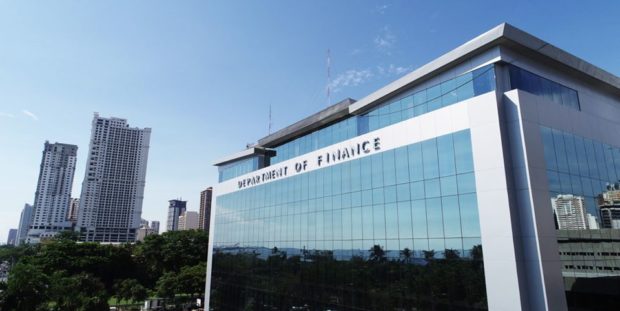MANILA, Philippines—Passing the long-pending land valuation reform bill would allow local government units (LGUs) to tap property taxes as a more reliable revenue source, the Department of Finance (DOF) said on Friday (April 8).
In an economic bulletin, the DOF’s chief economist and former undersecretary Gil Beltran noted that public expenditures at the start of 2022 were enlarged by the nearly one-fourth bigger share of local government units (LGUs), now called national tax allotment (NTA), in this year’s P5.02-trillion national budget.
The Department of Budget and Management (DBM) last January released P239.8 billion in LGUs’ first-quarter NTA. LGUs will receive a total of over P959 billion in NTA this year, up from the P695.5 billion in their formerly called internal revenue allotment (IRA) last year. This was in line with the implementation of the Supreme Court’s Mandanas-Garcia ruling, which required LGU shares in national budget to be computed based on all taxes collected by the Bureau of Internal Revenue (BIR) and Bureau of Customs.
In the past, LGUs’ IRA only came from BIR collections.
With larger budgets, LGUs now take care of local programs and projects in infrastructure, agriculture, social welfare, health care, as well as livelihood, among other sectors listed in the Local Government Code.
“With greater resources, LGUs are henceforth expected to assume greater fiscal responsibilities and carry on the functions devolved to them by the LGU Code of 1991,” Beltran said.
For Beltran, “this is effectively fiscal federalism, and could be further enhanced by passing the valuation reform act such that LGUs are empowered to mobilize even more internally generated resources.”
Belonging to the Duterte administration’s comprehensive tax reform program, real property valuation reform was aimed at developing an equitable and efficient system while broadening the tax base used for property-related taxes of the national and local governments, Finance Secretary Carlos Dominguez III said early this year.
“Reforming the property valuation system to make it on par with global standards and shielding it from political influence will help LGUs raise more revenues without increasing the existing tax rates or imposing new taxes,” Dominguez had said.
Two pending tax reform bills — real property valuation and the passive income and financial intermediary taxation act (Pifita) — were already passed by the Lower House, but remained pending in the Senate.
After the May 9 national elections, Congress will have only two sessions on May 23 to June 3, before adjourning and paving the way for the next set of legislators in July.
Dominguez had said that in case the pending bills on land valuation and capital market taxation won’t pass in the current 18th Congress, they would be part of the fiscal consolidation proposal for the next administration’s consideration.
The economic team led by the DOF will turn over to the next President a fiscal consolidation plan, which may include new or higher taxes, spending cuts on non-priority sectors, and economic growth drivers to revert the budget deficit to pre-pandemic levels of about 3 percent of gross domestic product (GDP) while repaying debts that ballooned amid the prolonged COVID-19 pandemic.
TSB
